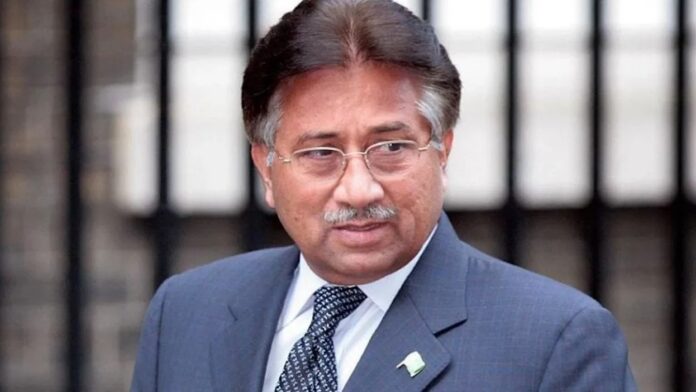| Translate This News In |
|---|
Former Pakistani President and Army Chief of Staff Pervez Musharraf passed away today at the American Hospital in Dubai, United Arab Emirates, following a protracted illness. He had been living in exile for years under his own self-imposed rule. He was 79.
Although his family has been seeking to return him to Pakistan since last year, there has been no formal announcement regarding whether or not his remains would be sent there.
A condition known as amyloidosis was causing Mr. Musharraf’s organs to malfunction. This illness interferes with normal function by affecting connective tissues and organs. It is a rare disease brought on by the accumulation of an aberrant protein called amyloid in various human organs and tissues.
Mr. Musharraf has been residing in Dubai for the past eight years since he is facing charges at home for the 2007 murder of former prime minister Benazir Bhutto. He had before stated that he wanted to spend the “rest of his life” in Pakistan and that he would do everything in his power to get there as soon as possible.
Following a successful, non-violent military takeover in 1999, the former President became Pakistan’s eleventh leader. From 1998 to 2001, he presided as the tenth Chairman Joint Chiefs of Staff Committee of Pakistan (CJCSC), and from 1998 to 2007, he was the seventh most senior general.
He was regarded as the war’s mastermind and was the one who gave the order to send troops into India to shut off Leh from Srinagar.
He denied their existence, but Pakistani soldiers were destroyed in the combat that ensued in the summer of 1999 in the high mountains of Kargil. It was a disastrous military setback for Mr. Musharraf, who had advanced the plot while mostly keeping his Prime Minister Nawaz Sharif in the dark.
It’s almost unbelievable that Mr. Musharraf returned from Kargil two years later stronger than ever.
While Mr. Musharraf was visiting Sri Lanka on business, Nawaz Sharif attempted to stop him from coming home. Nawaz Sharif was apprehended, imprisoned, and then exiled.
In a bloodless coup, Mr. Musharraf installed himself as Pakistan’s president in June 2021 with the backing of his army.
The sporadic democratic process in Pakistan would come to an end for the following seven years.
Pervez Musharraf visited India in July 2001 while serving as president.
Mr. Musharraf, who was born in New Delhi in 1943, was only four years old when his parents migrated in large numbers to the newly formed nation of Pakistan. The family followed a moderate, tolerant form of Islam, and his father worked in the foreign ministry while his mother was a teacher.
He enlisted in the military at the age of 18, eventually ascending to command an elite commando unit before becoming its commander. By toppling the then-prime minister, Nawaz Sharif, who had attempted to fire him for authorizing an operation to conquer Kashmir, bringing Pakistan and India to the verge of war, he seized control.
When Mr. Musharraf illegally removed Iftikhar Muhammad Chaudhry, Pakistan’s then Chief Justice, on March 9, 2007, it led to widespread political unrest that made the military dictator look weaker.
Political parties asked him to resign as president in August 2008 after the subsequent year’s elections. Following the 26/11 attack that November, relations between India and Pakistan deteriorated.
The General was subsequently detained on grounds connected to the detention of judges.
Under house arrest, Mr. Musharraf was facing a barrage of legal proceedings and was charged with undermining the constitution. When his name was taken off the exit control list in March 2016, he was finally permitted to leave Pakistan after being initially barred from doing so. He then was able to fly to Dubai.
General Pervez Musharraf was given a symbolic death sentence in December 2019 by a special court in Pakistan for suspending the country’s constitution in 2007. This judgment was given in absentia because Dubai does not have an extradition agreement with Pakistan.
The Lahore High Court overturned the death sentence and declared the preceding trial to be unlawful in January 2020 after Mr. Musharraf appealed the decision.


















